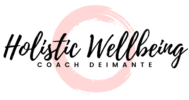When most people hear the word coaching, they think of sports. But health and wellbeing coaching is something different: it’s about helping people navigate their own health in ways that feel realistic, empowering, and sustainable.
In the NHS, health coaching is becoming a vital part of personalised care — a national movement that shifts the question from “What’s the matter with you?” to “What matters to you?”
So, what exactly is Health & Wellbeing Coaching?
A Health & Wellbeing Coach works alongside people to:
-
Explore what matters most to them in relation to their health and wellbeing.
-
Build confidence and motivation to make small, achievable changes.
-
Provide tools and reflective space for self-management of long-term conditions, stress, or lifestyle challenges.
It’s not about telling someone what to do. It’s about creating a safe, non-judgmental space where individuals can uncover their own solutions.
For example, rather than saying: “You need to exercise three times a week,” a coach might ask:
-
“What would make movement enjoyable for you?”
-
“What feels like a realistic first step?”
This approach recognises that health is not linear — and that every person’s journey looks different.
How does it fit into the NHS vision of personalised care?
The NHS has a clear commitment to personalised care, outlined in the Universal Personalised Care model. Health & Wellbeing Coaching sits at the heart of this, alongside social prescribing and care coordination.
Together, these roles are helping to:
-
Shift power back to individuals. Instead of being passive patients, people become active partners in their care.
-
Tackle health inequalities. By supporting those with long-term conditions, chronic pain, or complex challenges, coaching helps reduce gaps in outcomes.
-
Lighten the load on clinical teams. Coaches focus on the behavioural and lifestyle side of health, freeing up GPs and nurses to focus on medical care.
As someone who’s worked across NHS England and Integrated Care Boards, I’ve seen first-hand how coaching transforms the dynamic: it bridges the gap between “healthcare delivery” and “real life.”
Why does this matter for communities and public health?
Health isn’t only shaped by doctors’ appointments — it’s shaped by our daily routines, social networks, environment, and sense of purpose. Coaching acknowledges this wider picture, aligning with public health principles.
By helping people feel more confident and connected, coaching supports:
-
Mental health and resilience (reducing stress, burnout, and isolation).
-
Lifestyle change (like improving sleep, food habits, or physical activity).
-
Community wellbeing (encouraging connection and participation).
When people feel supported to take small steps that fit into their lives, the ripple effects extend beyond the individual — into families, workplaces, and communities.
A Relatable Example
Imagine Sarah, a 45-year-old balancing work, family, and a long-term condition. She’s often exhausted and feels stuck in a cycle of guilt for “not doing enough.”
Through coaching, Sarah doesn’t receive another list of “shoulds.” Instead, she explores what’s truly important to her. She identifies that walking with her friend once a week gives her energy and joy. Over time, this small step grows into a routine that improves her mood, mobility, and confidence.
That’s the power of health coaching: it starts where people are, not where others think they should be.
Takeaway: Coaching as Part of a Wider Shift
Health & Wellbeing Coaching is more than a service — it’s a mindset shift. It connects with the NHS’s goal of a more personalised, equitable system while also supporting broader public health priorities like reducing inequalities, preventing illness, and building community resilience.
It’s not about quick fixes or perfection. It’s about partnership, compassion, and progress — one step at a time.
✨ Reflection Prompt for You
If you had support from a coach today, what’s one area of your health or life you’d like to feel more confident in?
Our introductory activity to health coaching can be used by absolutely anyone to begin their self-care journey. Click here to download your copy of the workbook.


Leave Your Comment